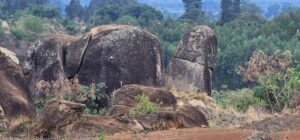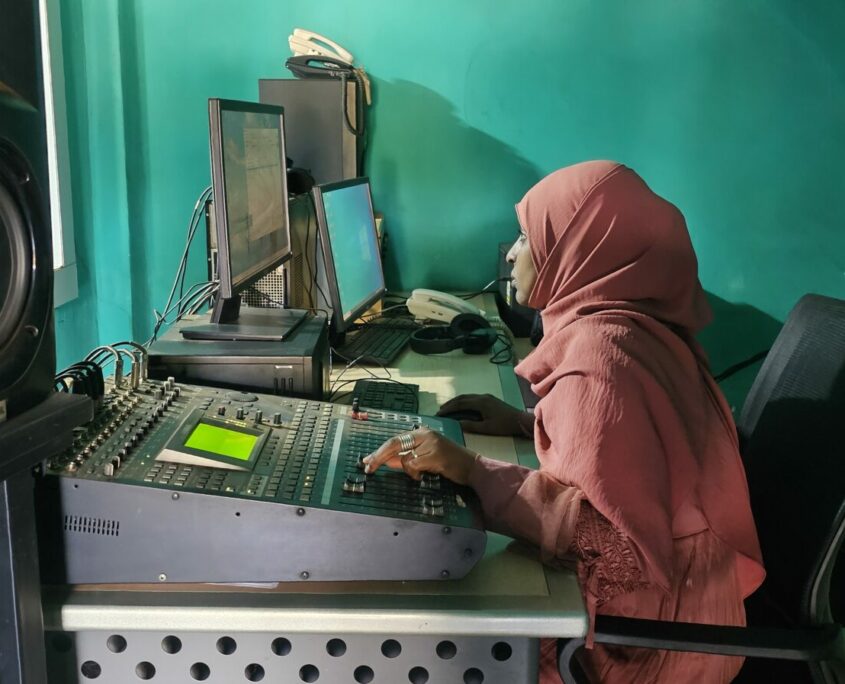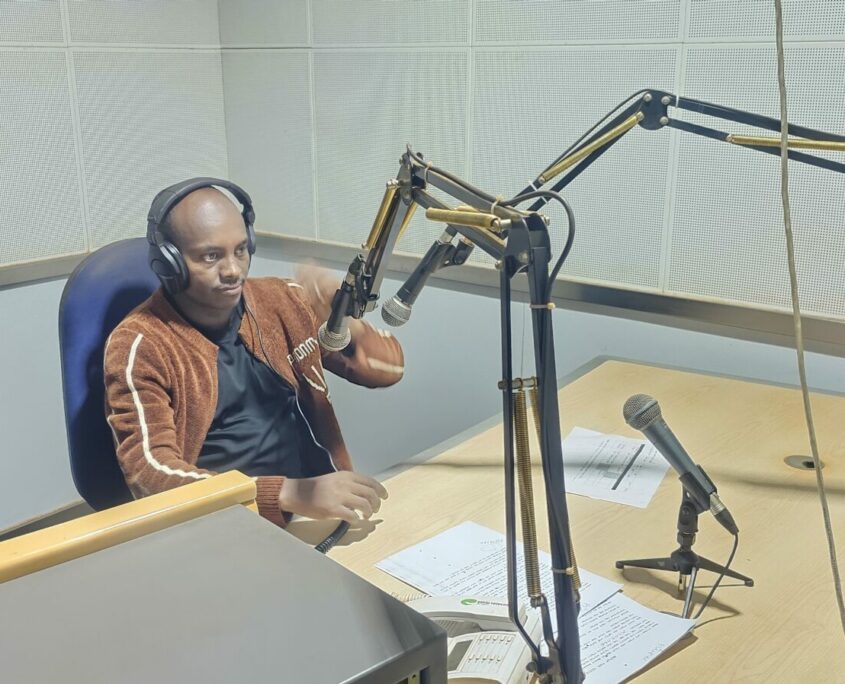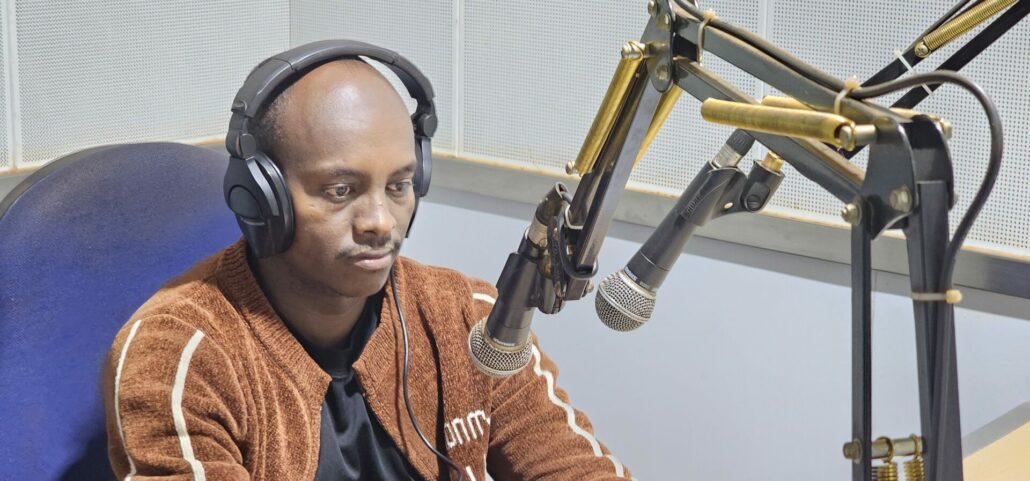Radio listening clubs catalyse awareness of land use planning
Endirs Abdu, a radio journalist at the Benishangul Gumuz Media
Endris Abdu is an experienced radio journalist based in Assosa town, Western Ethiopia. For the last twelve years he has hosted shows about the environment, economy, agriculture, and health, among many other topics, focusing on issues both, at the regional as well as grassroots levels. Recently, he hosted a show on the participatory and integrated land use planning (PILUP) process currently being implemented for Abramo Woreda.
 Abramo (also referred to locally as Abrahamo, Aburamo, Aberamo or Aberahamo) is a large and environmentally diverse district of Benishangul Gumuz, bordering Sudan. Abramo extends west from the cool, fertile agricultural land at the edge of the Ethiopian highlands at 1.400 metres elevation, down to hot, humid lowland forests at only 300 metres of elevation. Effective land use planning must respond to the many variations of the physical and social composition within the district. Assosa town, in the highland part of it, is the regional capital, and surrounded by intensely used farmland, eucalyptus plantations and Assosa’s renowned mango trees. North, south and west of Assosa lie large tracts of open forest and scrub land, the forest – including Ambesa Chaka Forest Reserve – having been seriously degraded by years of burning and neglect. The largest trees remain in the gallery forest along the major rivers.
Abramo (also referred to locally as Abrahamo, Aburamo, Aberamo or Aberahamo) is a large and environmentally diverse district of Benishangul Gumuz, bordering Sudan. Abramo extends west from the cool, fertile agricultural land at the edge of the Ethiopian highlands at 1.400 metres elevation, down to hot, humid lowland forests at only 300 metres of elevation. Effective land use planning must respond to the many variations of the physical and social composition within the district. Assosa town, in the highland part of it, is the regional capital, and surrounded by intensely used farmland, eucalyptus plantations and Assosa’s renowned mango trees. North, south and west of Assosa lie large tracts of open forest and scrub land, the forest – including Ambesa Chaka Forest Reserve – having been seriously degraded by years of burning and neglect. The largest trees remain in the gallery forest along the major rivers.
PILUP II, funded by GIZ (German Agency for Development Cooperation) partnered by the Ethiopian Ministry of Planning and Development, is implemented in five districts of three Ethiopian regional states (Amhara, Benishangul Gumuz, and Oromia). In all districts, it brings together many stakeholders (government sectors, commercial entities, civil society organizations, local communities, and marginalized groups) to jointly produce a sustainable land use plan as a shared enterprise, a vision for the future.
A team of four specialists, contracted by AMBERO Consulting Gesellschaft mbH, assists in all the technical aspects of spatial planning, land use planning, communications, and monitoring and evaluation, and gives training and capacity development to stakeholders to foster these skills.
The core aspect of PILUP II is ensuring that priority is given to human rights at every stage, (project implementation uses a human rights-based approach – HRBA) and that the participation and needs of women and vulnerable groups (referred to as a Gender Transformative Approach – GTA) are placed front and centre of the process.

Immediately after the official project launch (November 2022) local Assosa media were approached and asked to prepare a radio show, drawing on their intimate knowledge of local society and customs. The show was duly prepared and ran for a total of three calendar months. In this time, a wide and diverse range of subjects were covered: the nature and purpose of PILUP; project priorities and principles (focus on the HRBA, citizen participation, role of women); what does local communities participation mean in practice, and how the various sector interests (urban, tourism, mining, water, environment, agriculture, forestry) are brought together; how can the voices of marginalized groups be taken into account?
The radio show was presented in a variety of formats that included community dialogues, awareness-raising campaigns, workshops, and training sessions for the project. The events increased awareness among widest number of individuals in the local community about the meaning of participation and the many diverse social, environmental issues in and around land use planning.

The project established radio listening groups in selected Kebele’s (subdistricts), where individuals come together to listen as a group, then afterwards discuss in detail what has been said. Radios that were donated to the listening clubs further supported the sense of community, sharing of ideas and getting more people involved.
After Endris delivered his last and final show, we asked him about the experience and if there were any particular comments, he would like to make about it:
“Establishing the radio listening groups was a good decision” Endris remarked…
“It helped the community follow the radio programs more attentively, together, and it kick-started the discussions, ideas and exchange of information that followed at the various social gatherings later on.”
After the three months, Endris is satisfied that the local communities’ overall awareness about the many aspects and issues (animal health, forestry, housing, land tenure and registration, farming) concerned with land use planning in general, has been enhanced.
“On the whole, people feel that now they are better informed and understand that together they should not be passive about the important issues and decisions that affect them – together they have a voice which must be listened to … “
In the future, Endris would like to broadcast a follow-up show documenting people’s first-hand experiences implementing PILUP.
Author: Mr. Hailu Wudineh Tsegaye, Awareness and Education Specialist for PILUP II




